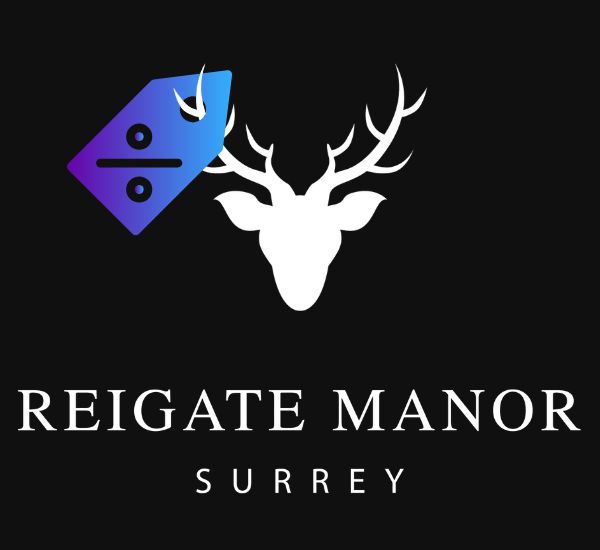REIGATE MANOR
HISTORY
For 240 years Reigate Manor has stood in prime location upon Reigate Hill. Discover our journey to the present day through the timeline below.
1780
Building Reigate Manor
It is thought that Reigate Manor began life as a very substantial family house called The Brokes in 1780. The house had a large estate fronting London Road, stretching from what is now Beech Road down to what is now Brokes Road. Neither of which existed 240 years ago.
1780
1890
The Brokes Expansion
In 1890 the estate was significantly increased by the acquisition of a large parcel of land fronting the south side of upper Beech Road.
1890
1920
Up For Sale
When The Brokes was put up sale by the Woolley family in 1920, the estate was described as have 'long and valuable frontages to Reigate Hill and Beech Road, portions of which would be immediately available for the erection of houses of good class'.
1920
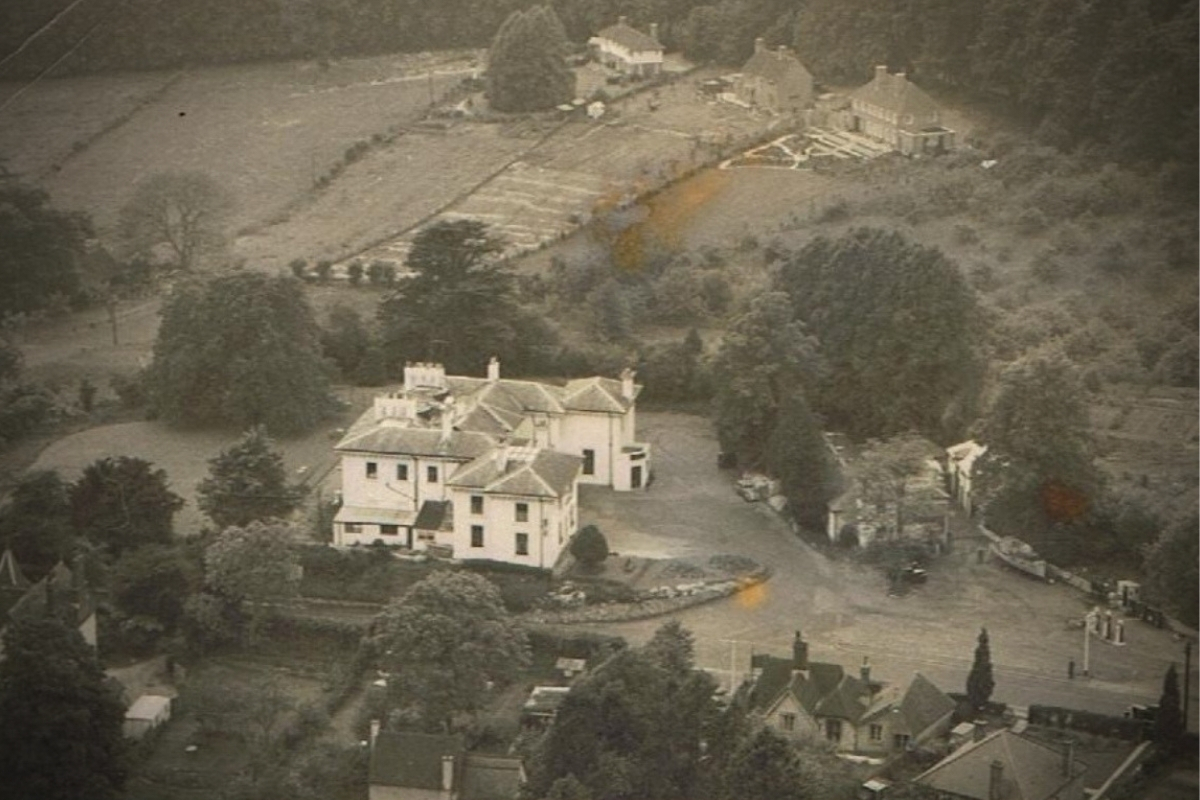
1922
Dame Rebecca Inglis
Dame Rebecca Inglis, a wealthy lady living in a large house in Beech Road, did not want “houses of a good class” spoiling her view to the south so in December 1922 she purchased the entire Brokes estate. She hived off for herself the land which fronted Beech Road and then in September 1923 put the house, with its smaller grounds, back on the market. Unlike most local house sales of the time The Brokes was offered with the option that the house could be used as a school, club or hotel.
1922
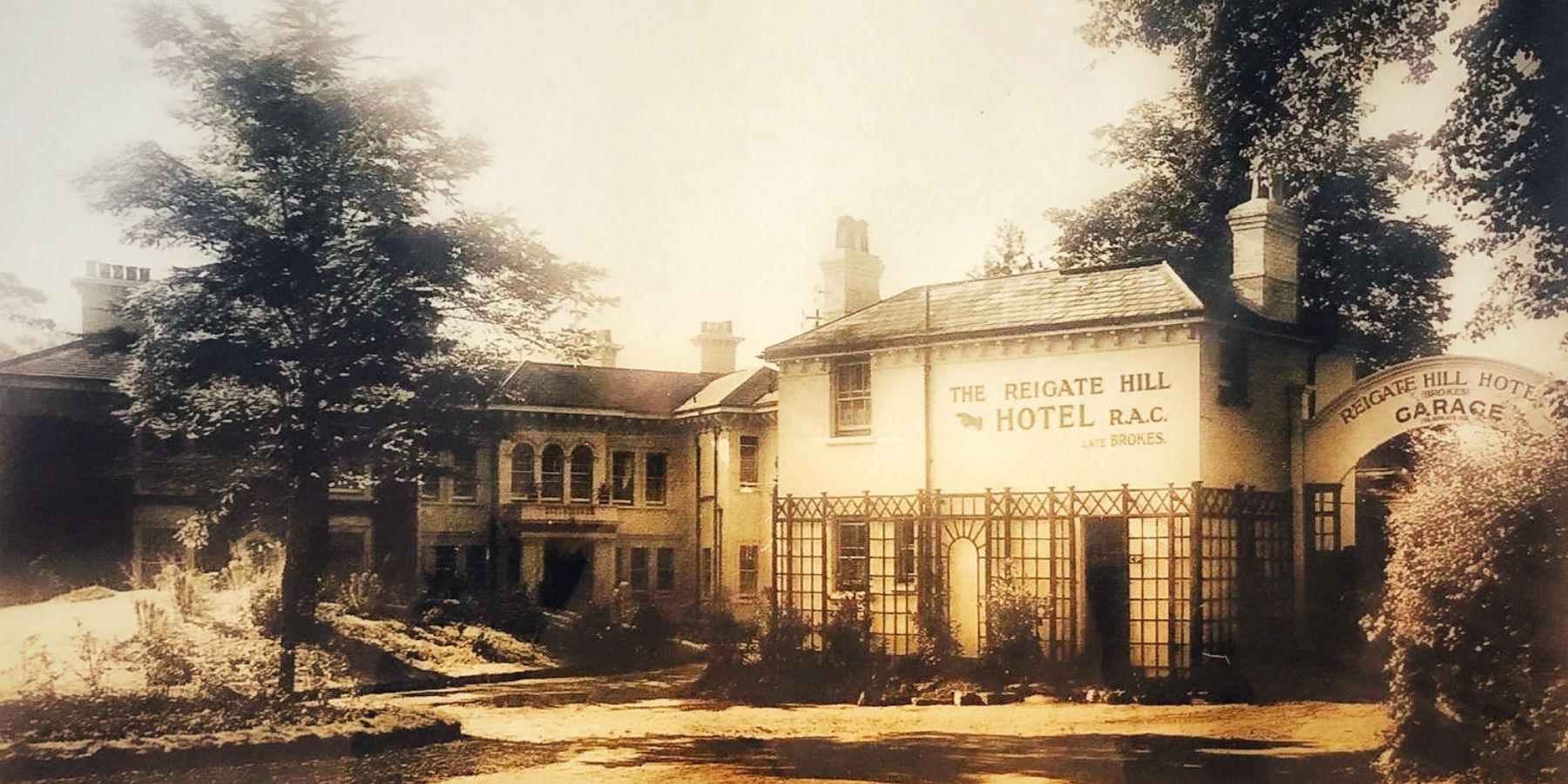
1924
The Brokes Hotel
The Brokes was successfully sold and by May 1924 was operating as Brokes Hotel. The hotel placed a small advertisement in the personal columns of The Times on 1st May 1924:
“THE BROKES HOTEL, REIGATE HILL Luncheons, Teas and Dinners Telephone: Reigate 502”
1924
1941
The Second World War
During the Second World War (April 1941) the hotel was requisitioned by the War Department to house troops of the newly formed South East Command. At the time of the requisition the hotel was in good working order with no more than normal wear and tear in evidence and it was agreed that the owner’s personal chattels in the hotel would be moved into the Ball Room which was to be be kept locked at all times.
1941
1944
The Second World War Cont.
Reigate Hill Hotel was de-requisitioned in December 1944. By then the building was in very poor condition and the contents were largely missing, damaged or destroyed. Frost, snow and burst pipes had caused the roof of the Ball Room to collapse and the owner’s chattels were beyond repair. The wrangle over compensation went on for months before an offer of £1,794 was made by the War Department. This was considerably less than Major Gordon, the owner, was expecting and it was not paid until January 1946.
1944
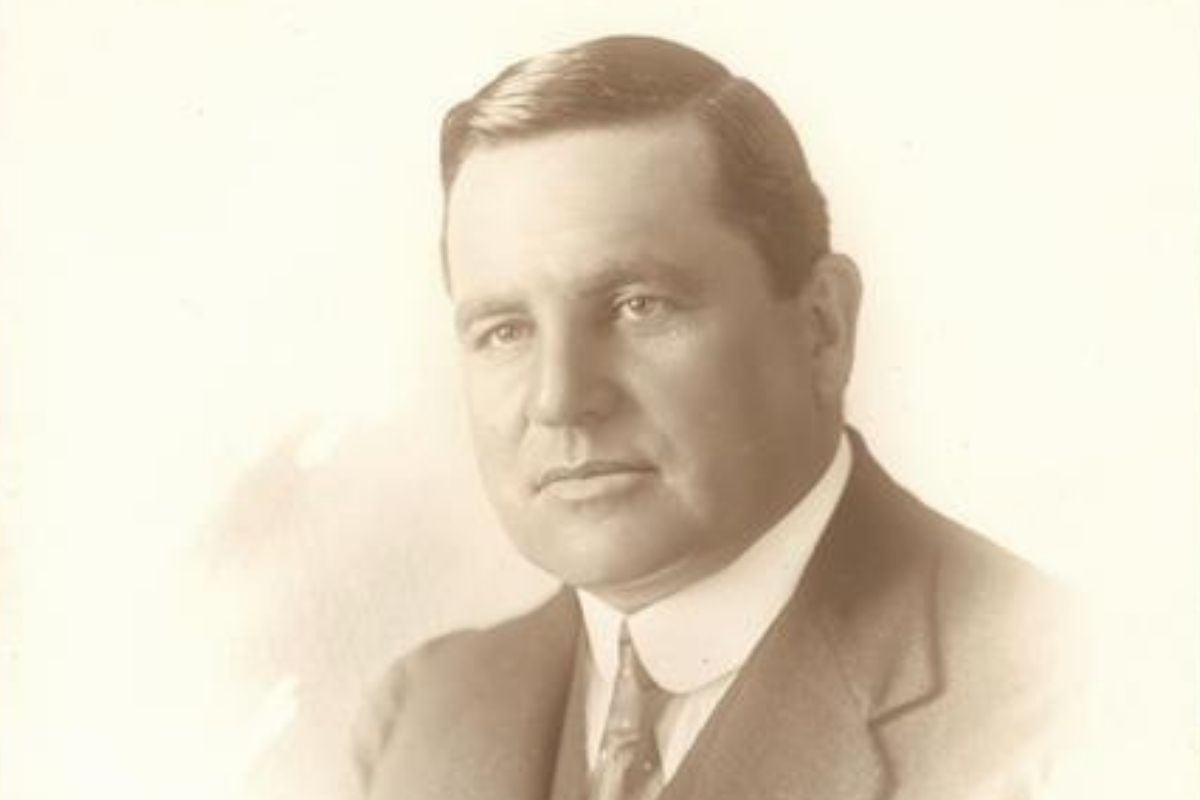
1946
Chalk Pit Murder
On May 30th 1946 Major Gordon sold the hotel for £30,000 to Mr. J. Brand. It is thought that the significant purchase price was more to do with the development value of the estate than the value of the hotel. It was during Brand’s short period of ownership that, in November 1946, the notorious ‘Chalk Pit Murder’ took place. The victim was the hotel’s barman John McMain Mudie.
An Australian politician, Thomas John Ley, imagined (wrongly) that his long term mistress, Maggie Brook, and John McMain Mudie were lovers. Ley persuaded two of his labourers that Mudie was a blackmailer, and together they tortured and killed him. Although the murder had nothing to do with Brand or the hotel, it adversely affected the hotel’s post-war recovery.
1946
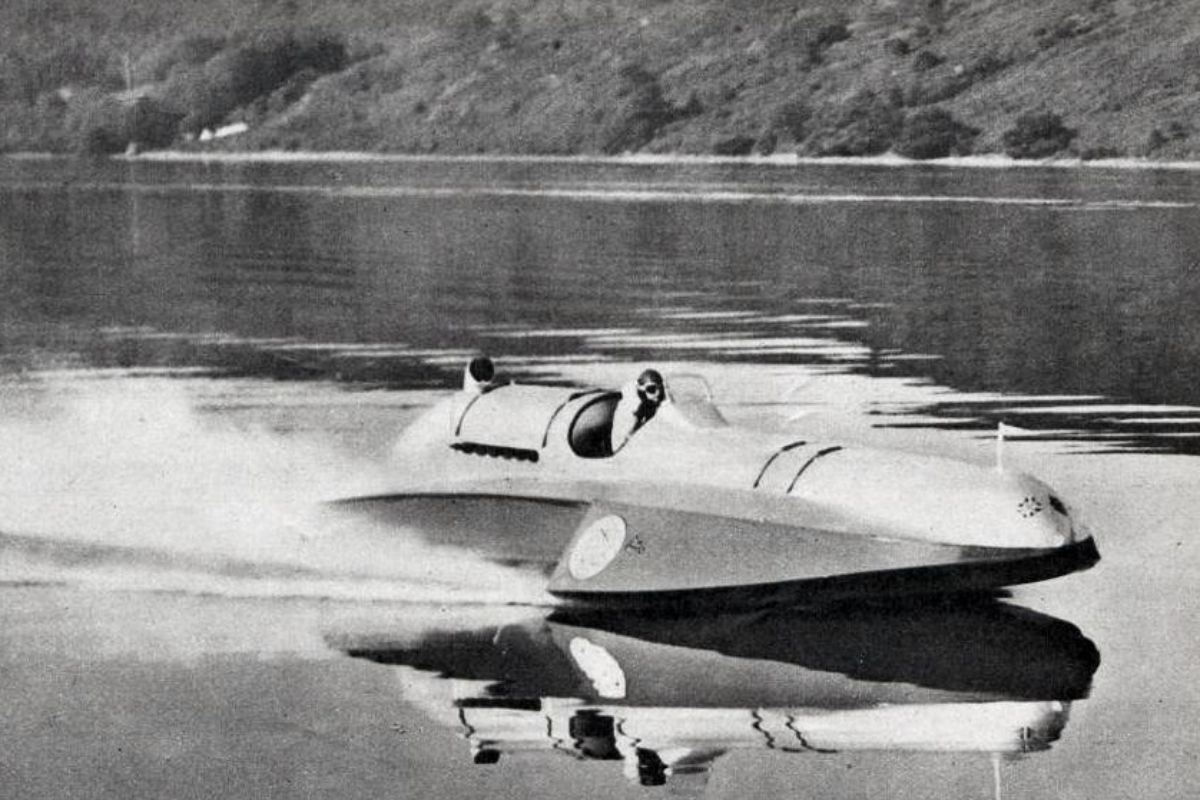
1947
Bluebird K4 - Donald Cambell
In 1947 Brand sold the hotel to Miss Margaret Park. She and her sister were great friends with the Campbell family of world speed records fame. Sir Malcolm Campbell, the holder of thirteen land and water speed records, died in Reigate after a series of strokes in 1948 and his son Donald vowed to pick up his father’s mantle. He engaged Leo Villa, his father’s mechanic, to help him mount an attack on the world water speed record and they decided to use his father’s old boat Bluebird K4 which had originally been developed and tested on Tilgate Lake in Crawley. Margaret Park agreed to rent the hotel garage to them and this is where Leo Villa prepared the boat for the record attempt. Donald and his first wife Daphne lived for a time in the hotel during 1949 while preparations got underway. The record attempt took place on Coniston Water in the Lake District in 1951, but it almost ended in disaster after a structural failure at 170 mph. Despite this inauspicious start, Donald went on to set seven world water speed records between 1955 and 1964. He also broke the world land speed record and was the only man in history to hold both land and water records in the same year. Donald died during another water speed record attempt on Coniston Water in January 1967.
1947
1972
Wayside Manor
Margaret Park remained the sole owner and proprietor of Reigate Hill Hotel until 1972 when she sold it to Wayside Inns Limited who changed the name to Wayside Manor. Two years later Wayside Inns Limited went into receivership.
1972
1974
Reigate Manor Hotel
In 1974 the hotel was sold to John Coyne, who lived at Underbeeches in Underhill Park Road. He changed the name of the hotel to Reigate Manor Hotel. Coyne sold the hotel to Raymond Terence ‘Terry’ Marsh and his company Finbar Limited in 1977 and Graeme Attridge became a director of Reigate Manor Limited.
1974
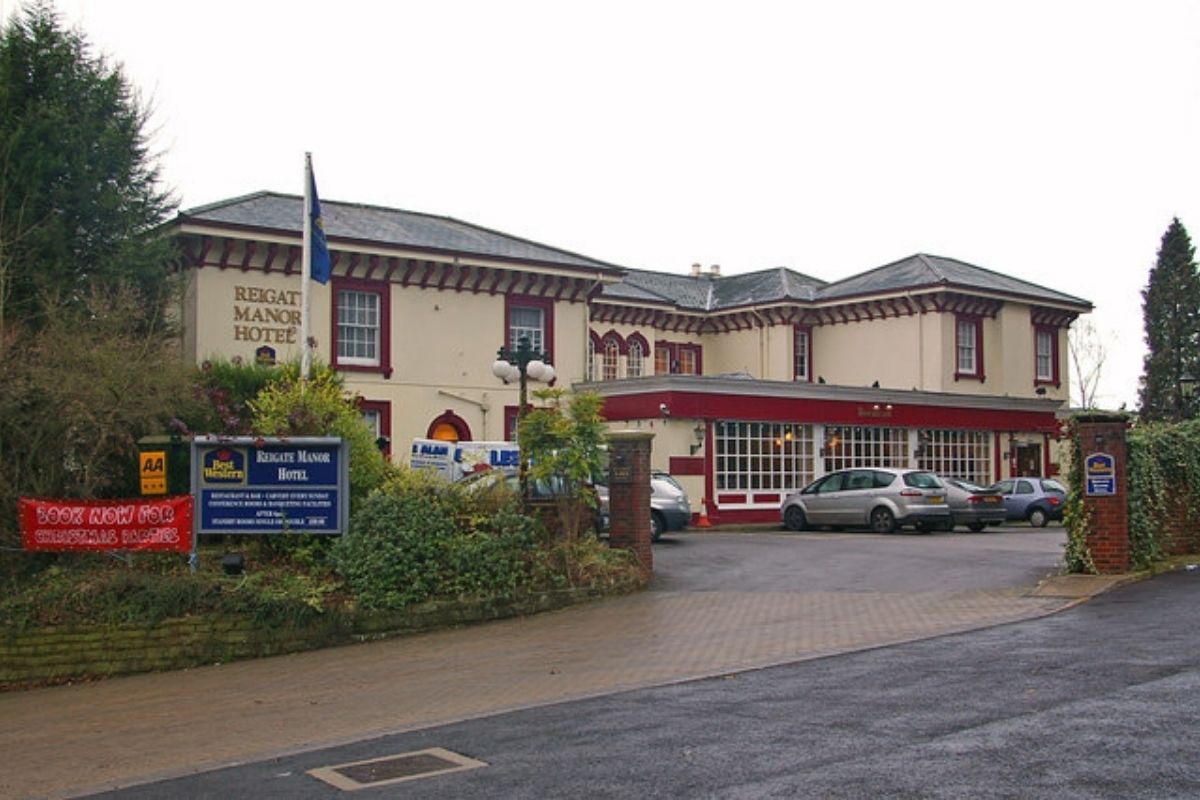
1999
CQK Hotels
In 1999 the hotel was sold to its current owner CQK Limited, later CQK Hotels Limited, but the name remained Reigate Manor. Graeme Attridge stayed in charge until 17th October 2012, when Giles Thomas took over the reins.
1999
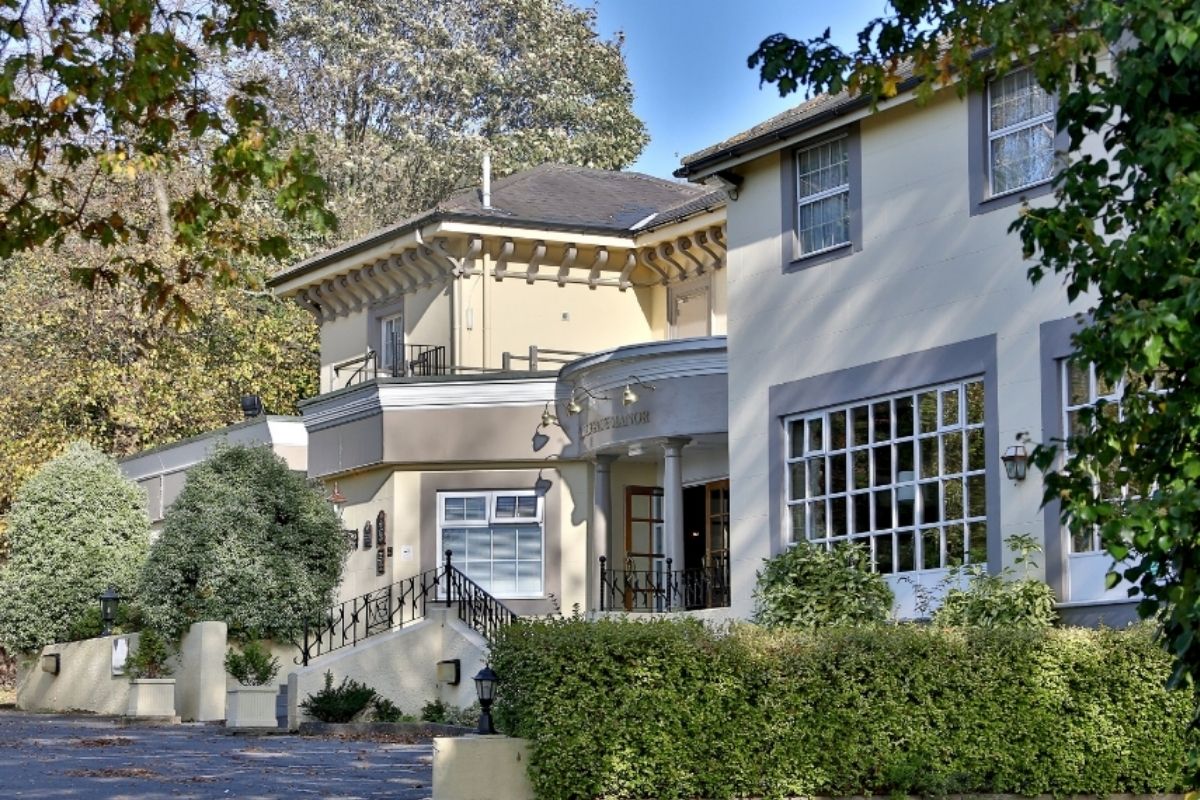
Present Day
Manor Collection
In 2017 CQK Hotels Limited changed their name to Manor Collection. Giles Thomas became Operations Director and Vikas Shrivastava became General Manager of the hotel. Manor Collection now has 3 properties within Surrey and Kent.
Present Day

